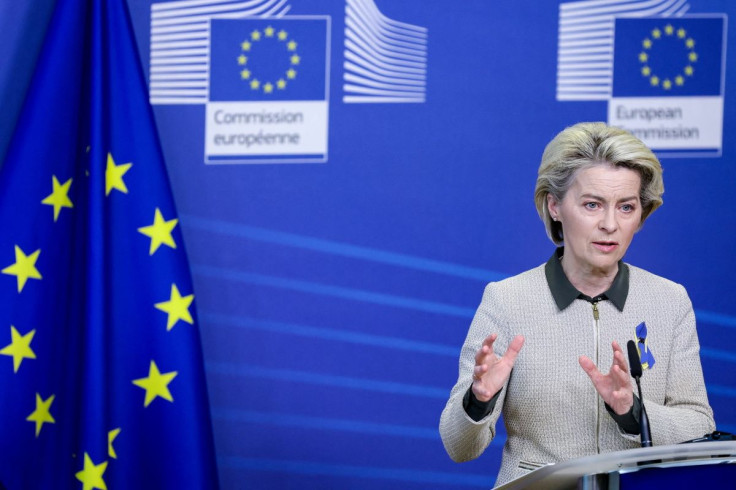China To Go 'Its Own Way' As EU Seeks Support On Ukraine

Chinese Premier Li Keqiang told EU leaders on Friday that Beijing would push for peace in "its own way" in Ukraine after Brussels pressed for assurances that China would not supply Russia with arms or help it circumvent Western sanctions.
Li spoke with the presidents of the European Commission and European Council, Ursula von der Leyen and Charles Michel, and EU foreign policy chief Josep Borrell for almost two hours by video link in the first EU-China summit in two years.
Li told the EU leaders that China has always sought peace and promoted negotiations and is willing to continue to play a constructive role together with the international community, state broadcaster CCTV reported.
EU officials close to the summit preparations had said any help given to Russia would damage China's international reputation and jeopardise relations with its biggest trade partners -- Europe and the United States.
An EU official said China's stance towards Russia was the "million-dollar question" on Friday. Another pointed out that over a quarter of China's global trade was with the bloc and the United States last year, against just 2.4% with Russia.
"Do we prolong this war or do we work together to end this war? That is the essential question for the summit," the official said.
China itself has concerns that European countries are taking harder-line foreign policy cues from the United States and has called for the EU to "exclude external interference" from its relations with China.
China's President Xi Jinping, who took part in a separate virtual meeting with the two EU leaders on Friday, said he hoped the European Union can form its view of China "independently", state broadcaster CCTV reported.
Wang Yiwei, an expert on Europe at the Beijing's Renmin University, said both China and the EU wanted the war to end.
"I imagine China would want to use this summit to discuss with the EU how to create the conditions acceptable to Putin for him to climb down from his current position," he said.
Relations were already strained before the Ukraine war.
The EU abruptly switched in 2019 from soft diplomatic language to call China a systemic rival, but sees it as a potential partner in fighting climate change or the pandemic.
Brussels and Beijing concluded an investment agreement at the end of 2020, designed to settle some EU concerns about reciprocal market access. However, it is now on hold after Brussels' sanctions against Chinese officials over alleged human rights abuses in the Xinjiang region prompted Beijing to blacklist EU individuals and entities.
China has since also suspended imports from Lithuania after the Baltic EU nation allowed Taiwan to open a de facto embassy in its capital, angering Beijing which regards the democratically ruled island as its own territory.
© Copyright Thomson Reuters 2024. All rights reserved.







